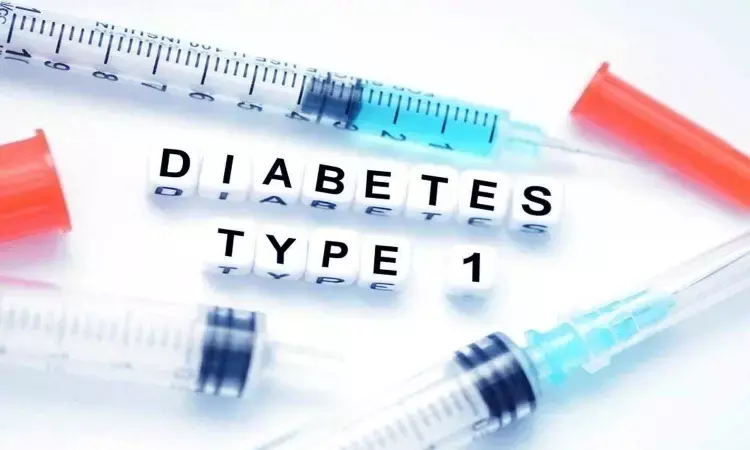- Home
- Medical news & Guidelines
- Anesthesiology
- Cardiology and CTVS
- Critical Care
- Dentistry
- Dermatology
- Diabetes and Endocrinology
- ENT
- Gastroenterology
- Medicine
- Nephrology
- Neurology
- Obstretics-Gynaecology
- Oncology
- Ophthalmology
- Orthopaedics
- Pediatrics-Neonatology
- Psychiatry
- Pulmonology
- Radiology
- Surgery
- Urology
- Laboratory Medicine
- Diet
- Nursing
- Paramedical
- Physiotherapy
- Health news
- Fact Check
- Bone Health Fact Check
- Brain Health Fact Check
- Cancer Related Fact Check
- Child Care Fact Check
- Dental and oral health fact check
- Diabetes and metabolic health fact check
- Diet and Nutrition Fact Check
- Eye and ENT Care Fact Check
- Fitness fact check
- Gut health fact check
- Heart health fact check
- Kidney health fact check
- Medical education fact check
- Men's health fact check
- Respiratory fact check
- Skin and hair care fact check
- Vaccine and Immunization fact check
- Women's health fact check
- AYUSH
- State News
- Andaman and Nicobar Islands
- Andhra Pradesh
- Arunachal Pradesh
- Assam
- Bihar
- Chandigarh
- Chattisgarh
- Dadra and Nagar Haveli
- Daman and Diu
- Delhi
- Goa
- Gujarat
- Haryana
- Himachal Pradesh
- Jammu & Kashmir
- Jharkhand
- Karnataka
- Kerala
- Ladakh
- Lakshadweep
- Madhya Pradesh
- Maharashtra
- Manipur
- Meghalaya
- Mizoram
- Nagaland
- Odisha
- Puducherry
- Punjab
- Rajasthan
- Sikkim
- Tamil Nadu
- Telangana
- Tripura
- Uttar Pradesh
- Uttrakhand
- West Bengal
- Medical Education
- Industry
Dapagliflozin effectively reduces blood sugar and weight in type 1 diabetes: Study

Delhi: A recent study evaluating dapagliflozin for the treatment of patients with type 1 diabetes (T1D) has yielded positive results. According to the study, over 52 weeks, dapagliflozin helped manage blood sugar levels and weight better than placebo without the risk for severe hypoglycemia. However, more events of diabetic ketoacidosis (DKA) were reported with dapagliflozin than placebo.
The pooled analysis by Moshe Phillip, Schneider Children's Medical Center of Israel, Tel‐Aviv University, Tel‐Aviv, Israel, and colleagues aimed to evaluate the safety and efficacy of adjunct dapagliflozin therapy in T1D patients.
DEPICT‐1 and ‐2 were randomized, double‐blind, parallel‐group, 24‐week studies, with 28‐week extension periods. Adult patients with T1D and HbA1c 7.5–1tio 0.5% were randomized in the ratio 1:1:1 to receive
DEPICT‐1 and ‐2 were randomized, double‐blind, parallel‐group, 24‐week studies, with 28‐week extension periods. Adults with T1D and HbA1c 7.5–10.5% were randomized (1:1:1) to receive dapagliflozin 5, 10 mg or placebo. The short‐ and long‐term efficacy and safety of dapagliflozin were examined in an exploratory pooled analysis of both studies.
Efficacy analyses included 530, 529 and 532 and safety analysis included 548, 566 and 532 patients in the dapagliflozin 5 mg, 10 mg and placebo groups, respectively.
Key findings of the study include:
- Baseline characteristics were similar between treatment groups.
- At Week 24, reductions were seen with dapagliflozin 5 and 10 mg compared with placebo in HbA1c (−0.40%, −0.43% vs 0.00%) and body weight (−2.45, −2.91 vs 0.11 kg).
- HbA1c and body weight reductions versus placebo were also seen after 52 weeks of treatment.
- There was no imbalance in occurrence of severe hypoglycaemic events between groups.
- The proportion of patients experiencing definite diabetic ketoacidosis (DKA) was higher with dapagliflozin 5 mg (4.0%) and 10 mg (3.5%) compared with placebo (1.1%) over 52 weeks; most events were of mild or moderate severity, and all resolved with treatment.
"Over 52 weeks, dapagliflozin provided glycaemic and weight benefits, there was no increased frequency of severe hypoglycaemia compared with placebo. More DKA events were reported with dapagliflozin than placebo, highlighting the importance of appropriate patient selection, education and risk mitigation strategies," concluded the authors.
"Long‐Term Efficacy and Safety of Dapagliflozin in Patients with Inadequately Controlled Type 1 Diabetes: Pooled 52‐Week Outcomes from the DEPICT‐1 and ‐2 Studies," is published in the journal Diabetes, Obesity and Metabolism.
DOI: https://dom-pubs.onlinelibrary.wiley.com/doi/10.1111/dom.14248
Dr Kamal Kant Kohli-MBBS, DTCD- a chest specialist with more than 30 years of practice and a flair for writing clinical articles, Dr Kamal Kant Kohli joined Medical Dialogues as a Chief Editor of Medical News. Besides writing articles, as an editor, he proofreads and verifies all the medical content published on Medical Dialogues including those coming from journals, studies,medical conferences,guidelines etc. Email: drkohli@medicaldialogues.in. Contact no. 011-43720751


